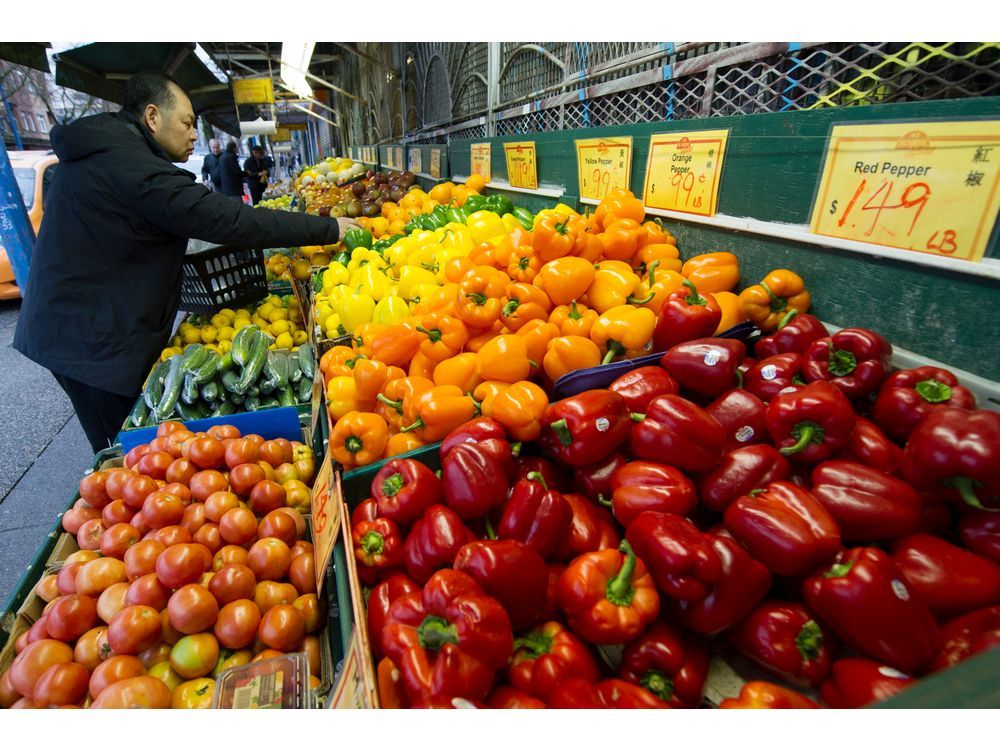B.C. meat-eaters, vegetarians to share food price pain next year

Credit to Author: Randy Shore| Date: Wed, 04 Dec 2019 14:16:38 +0000
Meat-eaters will have it the worst, but vegetarians will share their pain as British Columbians will pay more for food in the coming year. Again.
Canadians should expect seafood and vegetables to increase in price by up to four per cent and meat by up to six per cent due to high demand for beef and pork in China.
That means families will spend $500 more for food in the coming year, about $12,667, according to the 10th edition of Canada’s Food Price Report. Last year’s prediction was accurate to within $23.
The model is based on the consumption of a Canadian couple, 35 to 39 years old with a teenage boy and a preteen girl.
Canada Food Price Report.
B.C. will be the only province in Canada to suffer an above-average increase in both 2019 and 2020 and that is a shopping cart that requires some unpacking.
“British Columbia is killing it economically and that means you have to pay for it,” said lead researcher Sylvain Charlebois.
The price of fish rose five per cent last year, led by a 23-per-cent leap in the price of salmon. That situation is unlikely to improve.
Wild salmon catches — particularly sockeye — are increasingly unpredictable due to ecosystem change and due to the salmon aquaculture industry being blindsided by Prime Minister Justin Trudeau’s pledge to move the industry on to land by 2025.
“Seafood prices are going up because of high demand, but the architecture of aquaculture is now in transition,” he said. “Unless someone steps up to heavily capitalize the industry, it will struggle to stay in compliance.”
Fish and seafood will become even more popular with Canadians, but most of it will be imported, said Charlebois.
Demand for meat is dropping in Canada and nowhere more so than in B.C., where around 12 per cent of the population is either vegan or vegetarian. A recent survey found that nearly 40 per cent of British Columbians under the age of 35 follow a meat-free diet.
Until recently, most people would adopt a meat-free diet as young adults or college students, but teens are increasingly making the switch in junior high school or even earlier. That means more alternative proteins alongside meat at the family dinner table.
So, people who eat meat are buying less of it, while vegetable-based protein sales are on the rise, especially with the launch of Beyond Meat products.
“We expect meat sales to drop by $165 million this year across the country,” said Charlebois. “But there will be price hikes anyway, due to the China effect, where they are buying more beef than ever.”
The fast food industry’s shift away from single use plastics is likely to drive up the cost of eating out, as alternative packaging and utensils are typically more expensive. Restaurant prices as a whole are predicted to rise by up to four per cent in the coming year.
A long-awaited upgrade to Canada’s Food Guide came out in 2019 that encourages plant-based eating, but it drew criticism from people who complained that the food is more expensive to buy and requires more time to prepare. About four million Canadians are considered food insecure, they note.
More than 80,000 people in B.C. go to the food bank each month and one in three clients are children, according to the 2020 impact report by Food Banks B.C.